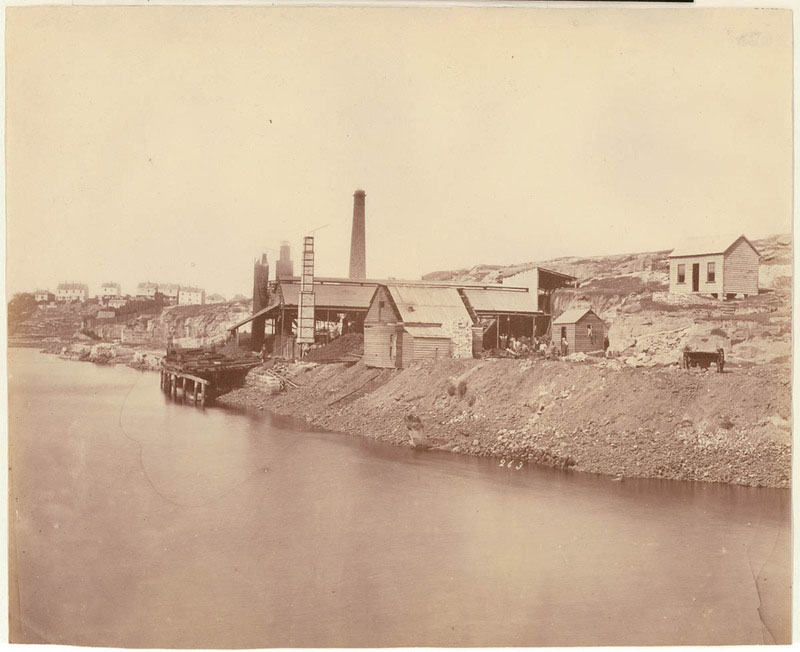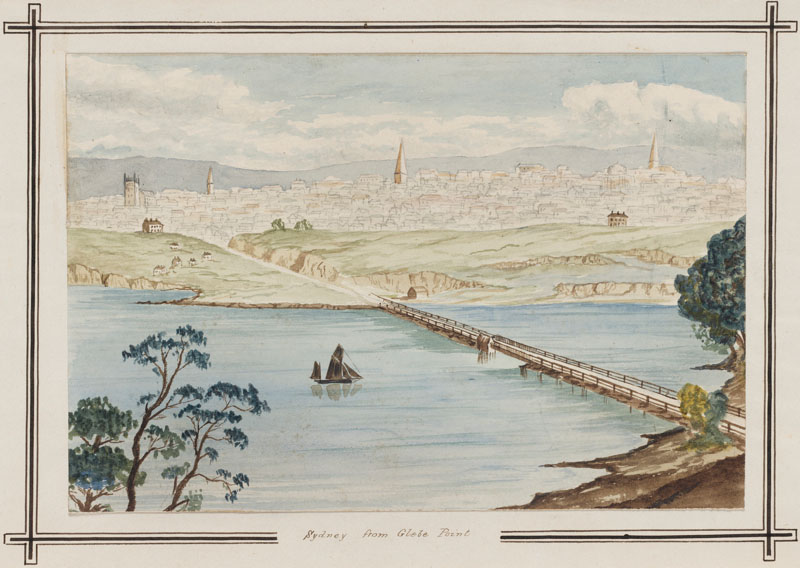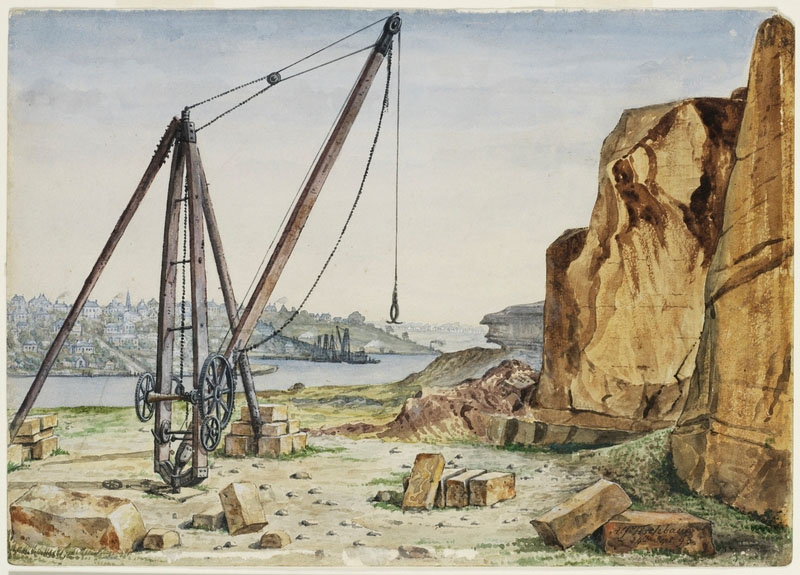Reflections
Date Built: 2002
Architect: Moore Ruble Yudell
Two 10 storey towers, Clear Water 47 apartments and Bridgeview 29 apartments. Overlooks Waterfront Park, Glebe Island, Johnstons Bay. Site of CSR raw sugar store.
Reflections
1850
John Macarthur encouraged development in his Pyrmont land grant, but sustained economic activity began only after his death in 1838 when the estate was subdivided. Boat building began in the Chowne shipyards in 1840, followed by allied industries – notably iron foundries. Quarrying followed. Saunders’s yellowblock sandstone quarries were more famous, but O’Brien’s quarry had a more immediate effect on the tip of the peninsula, flattening the land now occupied by Reflections and Cadi Park. Stone near the shore might be inferior, but that hardly mattered as it was sold as ballast for sailing ships. When sandstone became popular in the 1850s, large-scale quarrying began, and horse-drawn wagons hauled the stone to the city.
When abattoirs were evicted from the city they resettled on Glebe Island. A bridge linked the Island to our peninsula in 1857, and cattle (and carcasses) began to traverse this area. Soon the Island hosted a second abattoir. Fyfes iron foundry added sound and smoke, and so did the City Iron Works. By mid-century there were iron works and shipyards in Pyrmont. By 1875 working families filled a school, three churches and public baths. So Pyrmont’s shoreline enjoyed all the sounds and smells of heavy industry even before Edward Knox picked this site for CSR. Briefly, manure was stored on the Reflections site.















